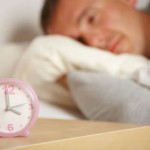Helping you get a good night’s sleep
‘I know I need sleep but I toss and turn all night!”
Is this you?
Sleep is essential for a sharp memory, not to mention your overall health. No-one feels on top of their game after a night spent tossing and turning, watching the clock creep forwards.
Most people need six to eight hours of sleep a night although, of course, people vary and you may need more or less than that. The key thing is the QUALITY of your sleep.
If you have breathing problems when you sleep (such as sleep apnea) then you might sleep for for ten hours a night and still never feel refreshed in the morning. That needs to be checked by your doctor. And it is true that insomnia becomes more common as you get older.
But there are things you can do to help. Try these …..
- Set up a sleep routine for yourself. Go to bed at the same time each night and wake up at the same time each morning. A set sleep routine will “train” you to fall asleep and wake up more easily.
- Do your most vigorous exercise early in the day. Exercising in the hours immediately before bedtime causes physiological changes that can interfere with sleep. Exercising in the morning, on the other hand, enhances your alertness when you need it most – at the beginning of the day.
- Say ‘No thanks’ to coffee and other sources of caffeine (e.g., chocolate, many soft drinks, some brands of aspirin, many types of tea) after mid-morning, because caffeine is a stimulant that can keep you awake for hours afterwards.
- Try not to nap during the daytime. Napping can disrupt your natural sleep cycle and prevent you from feeling tired enough to fall asleep at night.
- Don’t take sleeping pills unless nothing else works. Like sleep deprivation, sleeping pills can cause memory loss.
- Try drinking warm milk before bedtime. Some people find that it helps them feel sleepy. Milk contains tryptophan, a chemical that may help you relax.
- Don’t try to sleep if you’re not tired; otherwise you’ll set yourself up for tossing and turning. If you’re still awake after about 20 minutes in bed, get up and read awhile to help yourself relax.
- Having persistent sleep problems? Don’t hesitate to consult your doctor so that you can find out what’s wrong and get treatment if you need it.
See also how lack of sleep affects short-term memory, more tips on improving memory, how poor sleep can affect your job and how saying ‘no’ can help your memory.




